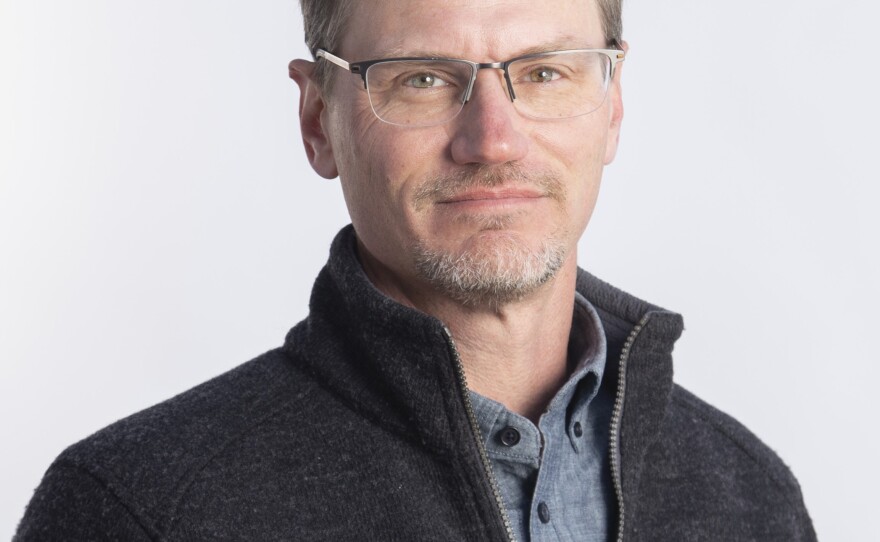Carbondale Mayor Ben Bohmfalk says that the most challenging few months of his term were those last year, when dozens of people were found to be living under a bridge by Highway 82. These people were migrants from Venezuela, and without any connections to the area, their
situation quickly became dire. As winter set in, multiple community leaders from across the valley came together to provide assistance.
“So it was the first weekend of November. I was sitting at home and got a call from Alex Sanchez from Voces Unidas de las Montanas. And he said that there were 80 unhoused migrants, mostly from Venezuela, living under the bridge in Carbondale. And that Voces Unidas was going down there. It was the first I'd heard of it. And we were completely unprepared to take on a challenge like that.”
By February of 2024, Texas had transported more than 102, 000 migrants to cities across the U.S., including Denver. In September 2023, buses were arriving there daily, sometimes four in a day, and more than 1,600 migrants were warehoused in city shelters. Nearly 20,000 asylum seekers from the southern border had received shelter and support in the months before the arrivals in Carbondale.
“Every community found itself completely unprepared and places like Denver were able to spin up a larger scale response because they're a larger municipal government and a combined county, the city and county of Denver. And then when services would sort of run low there, and they would be over their max of people that they could support, then those people found their way to other communities.”
When the migrants were discovered in late fall, Carbondale got busy finding creative solutions. Cooperation among governments and other entities was key.
“Colin Laird, one of our trustees who is the director of the Third Street Center was key to just saying, we're going to open the doors to the third street center. And so right away there was a place for people to stay, but that also presented huge challenges because we didn't have staff in place and that facility was really not equipped to house 40 to 60 people a night, which it started doing. And so then there was a lot of pressure on the town government to take the pressure off of Third Street Center and open up our own shelter.”
Multiple organizations from across the valley pitched in to help. Recovery Resources in Aspen became staffers. And the Carbondale Methodist Church opened its doors to serve as a temporary shelter. The town also provided a P. O. box so migrants could pursue things like work permits and temporary protected status. Bohmfalk says that Carbondale residents were largely supportive of efforts to assist the new arrivals.
“The Methodist Church opened up their doors as a shelter and there were some concerns from neighbors initially, but people mostly, were I think proud of the way that Carbondale responded compassionately to a really challenging situation for people.”
While the town pooled its resources, local leaders still needed help. The Division of Local Affairs awarded the town 223, 880 so it could reimburse itself for expenses like food, medical care, staffing, and transportation.
“We have great support from the state. DOLA, the Division of Local Affairs, and our DOLA rep helped us get a grant. It was a huge burden on each of us at the elected level that were involved as well as on the staff level.”
While the state readily provided, county officials weren't as receptive to the migrants or Carbondale’s situation.
"Garfield County took it upon themselves to declare themselves a non sanctuary county. For us as a town, we were trying to keep it nonpolitical. It was just that there were a bunch of people in our town as winter set in who didn't have a place to sleep and they weren't just going to
disappear.”
Carbondale is a uniquely small municipality with a population of under 7,000 people. Chronic homelessness is a rarity in the town and the valley, meaning there aren't many shelters and organizations readily available. Local officials are more focused on prevention of housing loss and helping residents stay local, and under a roof.
“Our whole workforce is in a housing crisis and has housing instability throughout, you know, the whole ranks of the workforce from low wage to high wage jobs at this point.”




